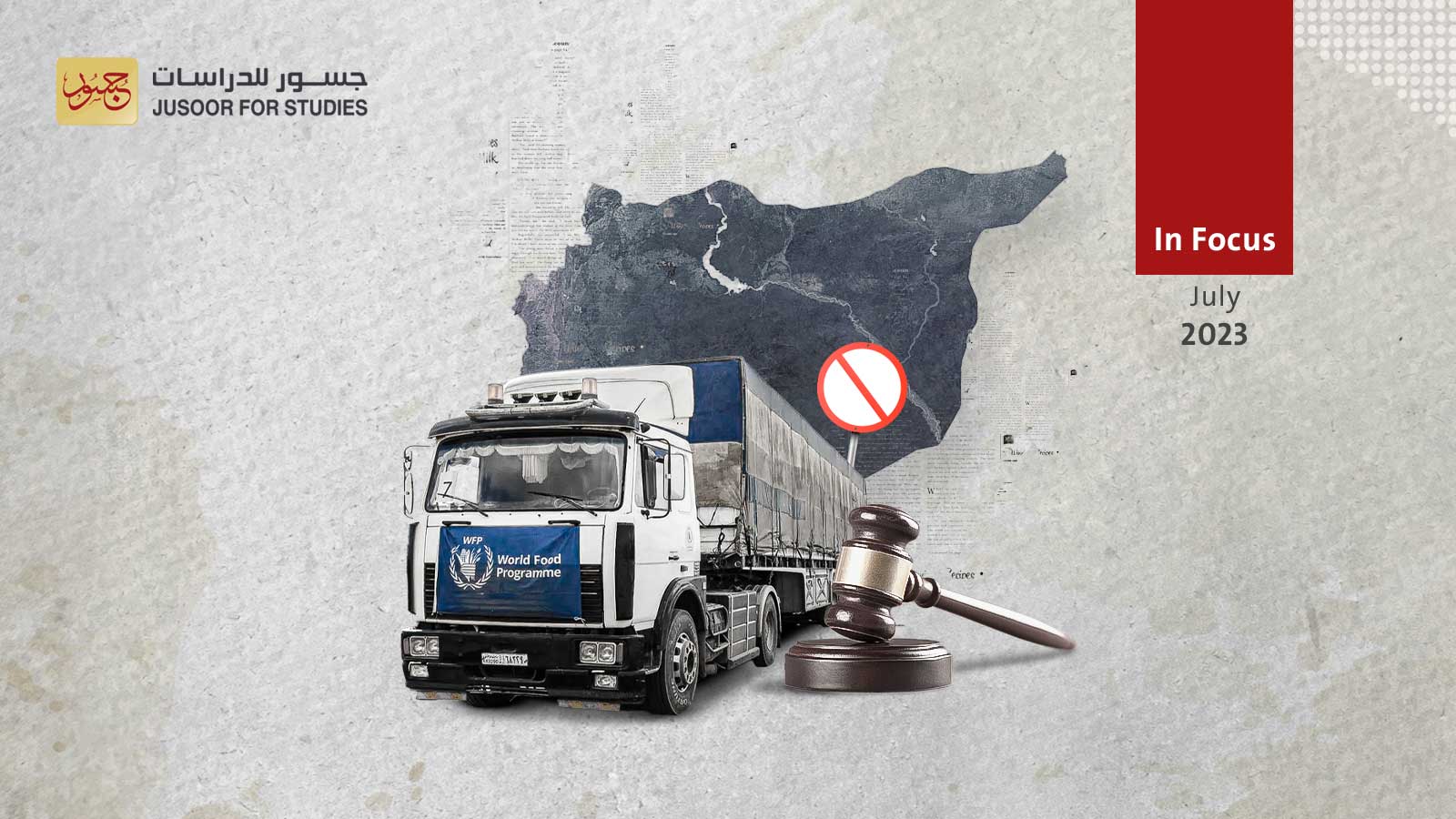What's Behind the Obstruction of Delivering Humanitarian Aid to Syria?
The UN Security Council convened on July 11, 2023, for a session to discuss extending the mandate for the humanitarian aid mechanism to Syria. The meeting concluded without reaching an agreement on either of the two draft resolutions that were proposed.
Russia exercised its veto to prevent a revised draft resolution put forth by the Brazil-Switzerland Penholder Group, which proposed the extension period for the Bab Al-Hawa crossing to be nine months instead of 12.
This resolution addressed many issues that Russia demanded in its draft resolution, such as improving cross-line delivery operations, expanding humanitarian activities to include mine-related humanitarian work, and recognizing the scale of the displacement crisis in Syria.
On the other hand, the Russian draft resolution included licensing for the Bab Al-Hawa crossing for six months, asking the Secretary-General to provide a special report on the impact of unilateral sanctions on the humanitarian situation and needs in Syria by December 10, 2023, and also acknowledging the contribution of sustainable development projects in the safe, dignified, and voluntary return of Syrian refugees and internally displaced persons (IDP) to their original homes.
Neither side, contrary to usual and expected practice in the Security Council between the Western permanent member states and Russia since 2014, wished to make further efforts to negotiate the two submitted draft resolutions concerning the delivery of humanitarian aid to Syria. This resulted in the disruption of the cross-border mechanism, which operates without the Syrian regime's permission.
This disruption occurred despite the similarities between the two draft resolutions. The Brazilian representative said after the failed vote: Some elements of the Russian draft resolution are already included in the text of the "Swiss-Brazilian" draft resolution, in addition to addressing the concerns expressed by the Syrian regime's representative.
There are three potential contexts or reasons behind the disruption of the mechanism in the Security Council: Russia's desire to end the mechanism, the absence of a Western desire for finding a compromise over this matter, or the Western countries' intention to go to the UN General Assembly.
- Russia's desire to end the mechanism: Russia is attempting to exploit the permission granted to the Al-Raai and Bab Al-Salam crossings by the regime, which the United Nations obtained on February 13, after the February 06 earthquake. The representative of Russia to the United Nations declared that there is no need for an international decision that violates the sovereignty of the regime, which can also grant such permission to the Bab Al-Hawa crossing or others if necessary. “The United Nations, through its contacts and coordination with the regime after the earthquake, proved it can organize its work without the mechanism,’ added the representative.
- Lack of Western desire for finding a compromise over this matter: The Russian representative expressed that Western countries are not willing or ready to go for a settlement this time. This approach was a provocative way that pushed his country to exercise the right of veto. This stance by the Western permanent members might be due to their keenness not to grant Russia more concessions concerning this mechanism, especially with the presence of an alternative mechanism been prepared since the end of 2022 after Russia began its efforts to undermine the delivery of aid cross-border humanitarian operations in Syria’s north-west
- Going to the General Assembly: Pursuant to Resolution 67/262 issued on April 26, 2022, which decided to hold an official session of the General Assembly within ten days of a permanent member state in the Security Council using the veto, and to hold a discussion on the situation in which it was used. This decision was taken after Russia's invasion of Ukraine on February 24, 2022. It's worth noting that Russia's veto that preceded the humanitarian aid resolution 2642 (2022) also went to the General Assembly, but after it had been agreed to pass it before holding the session dedicated to discussing the use of veto. The situation will be different if the Security Council does not agree on a resolution on the mechanism within the next ten days, which means that it is very likely the General Assembly to decide to extend the aid decision according to the formula rejected in the Security Council, or according to a revised formula established by the General Assembly. This would send a message to Russia that after the war on Ukraine, it is no longer an absolute veto power state, and it can be deprived of the right to veto, and some decisions can be transferred to other bodies within the United Nations.
In conclusion, disrupting the decision of humanitarian aid across the border to Syria does not mean undermining its access or returning to the regime's permission for its entry from the crossings, as alternatives have become available for the mechanism and Russia's recurrent use of the veto right in the UN Security Council.








